SUMMARY
This is AI generated summarization, which may have errors. For context, always refer to the full article.
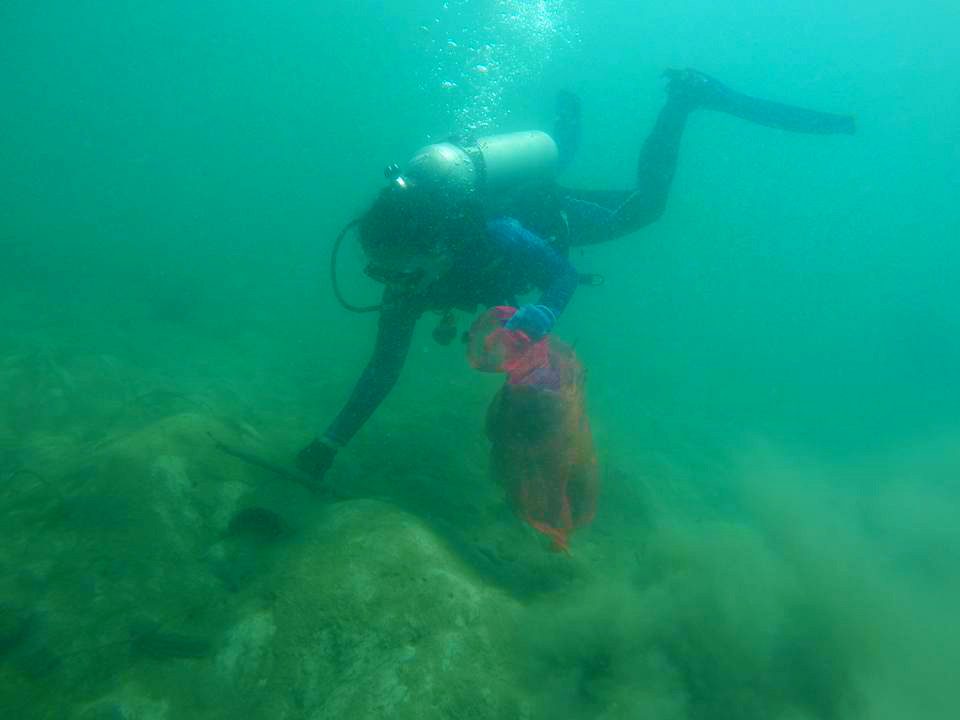
PALAWAN, Philippines – “People nowadays buy and throw away things without thinking it would end up somewhere,” 16-year old Emma Celine Cacatian said, her face not hide the disgust while doing the inventory of marine debris that the group had collected from the seafloor within the jurisdiction of Barangay Mangingisda, a coastal community in Puerto Princesa Bay.
Cacatian is the youngest volunteer of Scubasurero, a Millenials-led group of divers committed to protecting Palawan’s seas through underwater clean up drives and environmental awareness campaigns.
After recently winning a grant from private company Palawan Pawnshop, the group, with the majority of members having backgrounds in coastal resource conservation, kicked off the project on a scorching Saturday, May 6, in time with the celebration of the Month of the Ocean.
Since she has yet to get her diver’s license, Cacatian, alongside with other volunteers, stays on Barangay Mangingisda port to classify the solid wastes that divers hauled in sacks.
“With the data we collect from here,” Cacatian continued, wiping sweat from her forehead, “I hope it will give a realization to young and old alike to start changing their lifestyle.”
“Look what we have here,” she paused, pointing toward the pile of wastes, “You see – we’ve characterized them according to their type.”
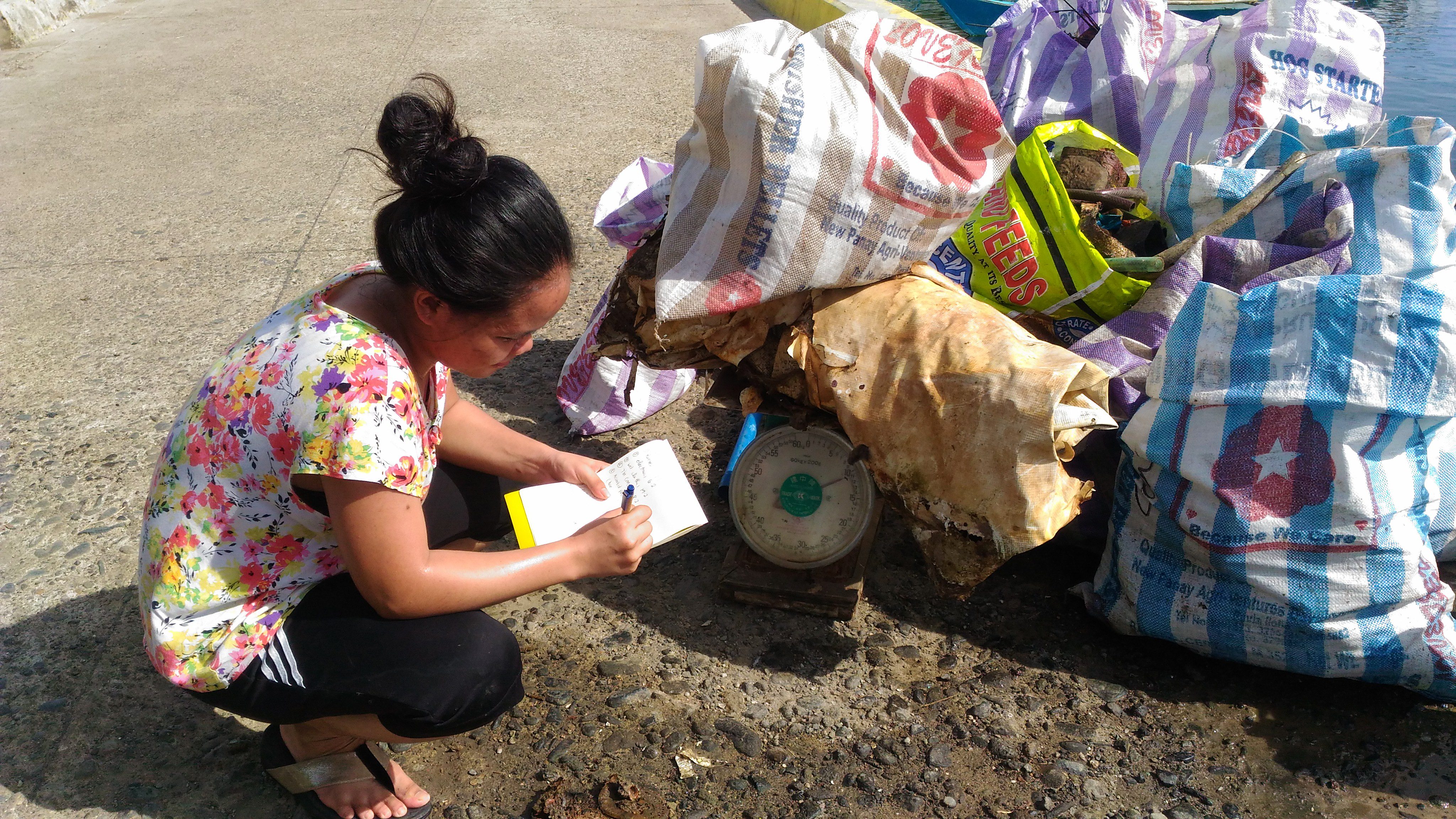
“Our divers were able to pull out plastic soft drink bottles, water bottles, liquor bottles, sachets, tin cans, nylon, fishing nets, used clothes, candy wrappers, plastic utensils, kitchen wares and even electronic wastes,” said the grade 10 student.
Life-threatening impact
Marine debris like plastic waste dumped into the sea is a global problem, posing a grave threat to the health of both human and marine life. The Philippines is the world’s 3rd biggest source of plastics in the ocean.
“People think that when they throw something in the ocean, it will just disappear,” said Jo Annie Corvera, one of Scubasurero’s volunteer diver. “But they won’t as they can last for hundreds of years on the ocean floor.”
Corvera, sitting on a bench in an outrigger boat, goes on explaining how it could kill marine wildlife like sea turtles that feed on jellyfish.
“So can you imagine a transparent plastic bag in the sea?,” she said. “Marine turtles cannot tell if it’s a plastic bag or a jellyfish. And the tendency is they would eat that – and since it’s indigestible they would eventually die.”
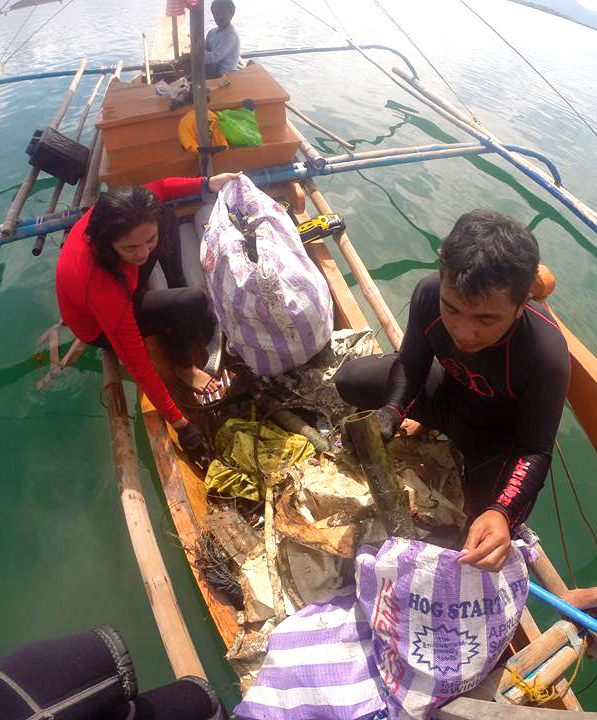
Not only that, it could also smother coral reefs that primarily serve as nursery grounds for many fish species, as well as home to other marine organisms, says the 31-year old fisheries graduate.
“When plastic bags disintegrate they become microplastics,” Corvera explained, “and there’s a chance that these small plastic pieces containing harmful chemicals could be ingested by the fishes that we eat.”
Global problem, local solution
Jenevieve Hara, co-founder of Scubasurero in Palawan, believes every global problem like marine debris requires a local solution.
Hara, a 23-year old marine biology graduate student, shares that the project was conceived during their first open water dive training with 9 of her friends last December 2016.
“While we’re having our dive training in an island declared as a National Coastal and Marine Center for Research here in Puerto Princesa, we saw plastic wastes in reef areas,” she narrated. “How come it reached that area which is closed to tourists and with no establishments at all except a research station?”
“That’s how we’ve come up with this project,” she said.
Changing the community
For Corvera, doing the underwater cleanup alone won’t solve the marine debris problem. “It’s like putting a band-aid on a wound.”
“And it’s a cultural thing,” she continued, “you have to change the community.”
“They have to understand the impact of trash on humans and marine biodiversity. Even if we do the cleanup every day if they don’t stop from littering the sea then it will never solve the marine debris problem.”
“This is the very reason why we’ll be doing information, education and communication campaigns as part of the project,” said Scubasurero co-founder Cherry Lyn Jalover, a 28-year old environmental management graduate student.
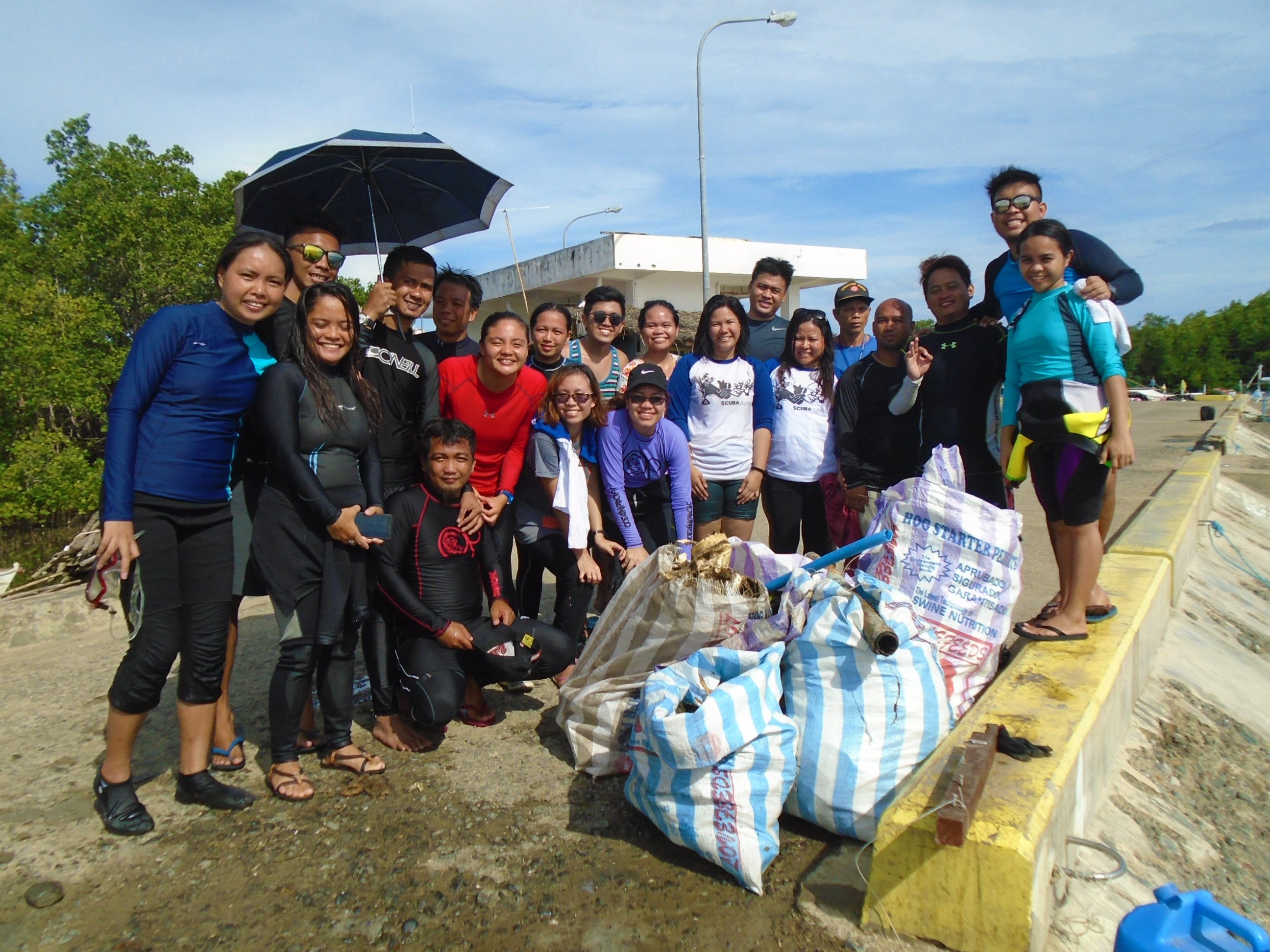
The campaign, focusing on the protection of different marine ecosystems as well as the effects of improper waste disposal to the seas, specifically targets out-of-school youths (OSY) in Barangay Mangingisda, which could be reached through a less than an hour boat ride from the Puerto Princesa port.
“Why OSYs? Because they are the gap that we see in the initiatives being undertaken by the government,” she said. “Basically, in-school youths are taught already about marine conservation; but how about the OSYs?”
Good thing that this fishing community has an organized OSY group of about 50 members. “Once empowered, we see them as the community’s key influencers whom we can also tap in cleanup activities,” Jalover said.
According to Corvera, this initiative will prove the fact that “you don’t need to be in the field of marine sciences to engage in marine conservation.”
“You just have to be aware that the ocean needs to be protected because it’s the source of food and livelihood.”
Growing movement
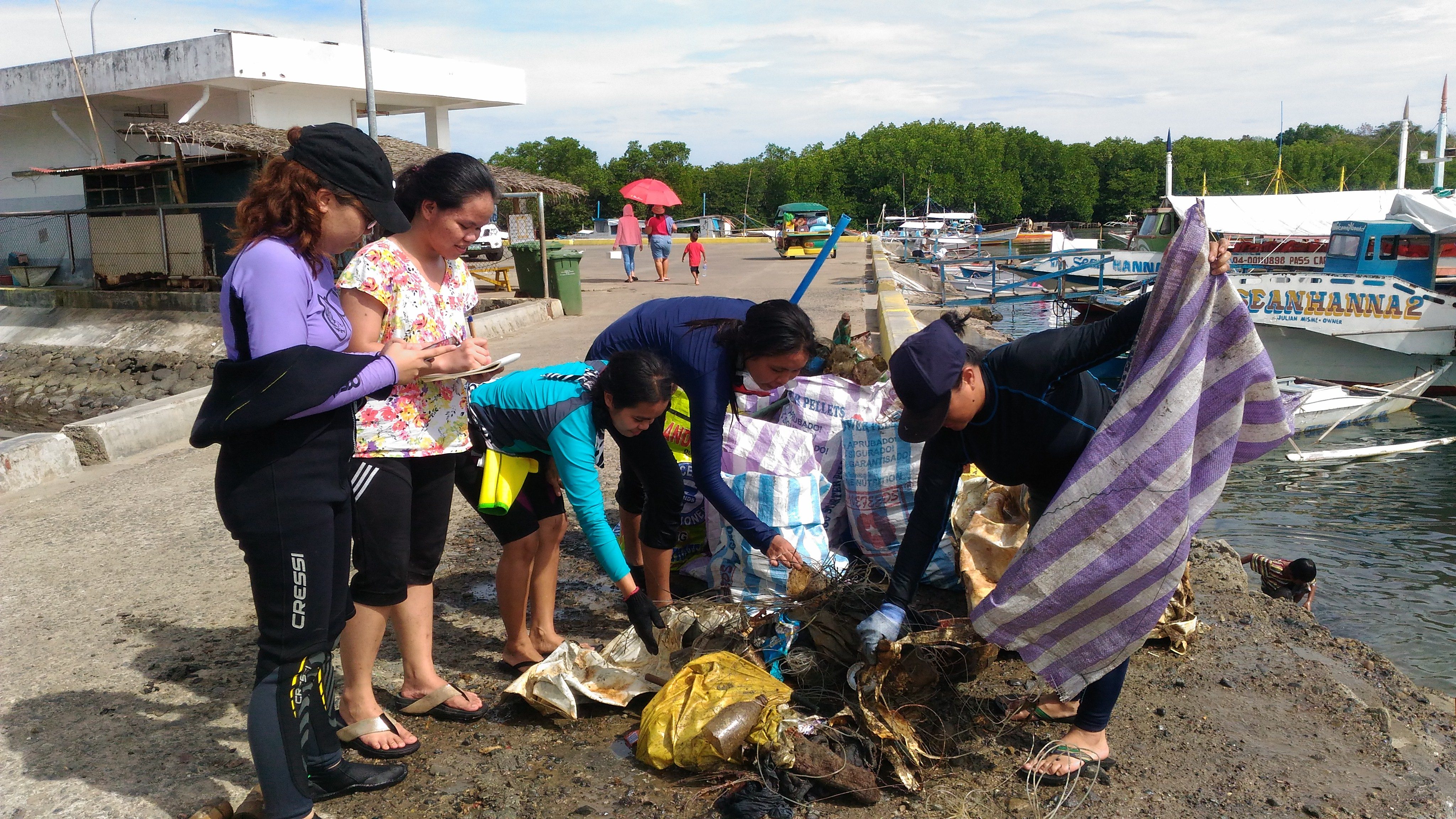
The group envisions itself to be a growing movement of divers who are passionate in taking part in marine conservation initiatives.
“Our goal is to grow in numbers and we are targeting other possible partners like dive shops since they have the manpower and diving gears,” Hara said. “We’re thrilled that owners of dive shops we’d talked to are more than willing to join our cause.”
The concept of Scubasurero has been implemented in other parts of the Philippines. In Puerto Princesa, it was once introduced by the city government a few years ago but was stopped due to unknown reasons.
“Every undertaking needs sheer commitment and dedication,” Hara said. “Those values are what we want to ingrain in every volunteer to make this project sustainable.”
“The bad news is this: While we’re doing this, tons after tons of garbage find its way into the ocean,” she added. “But we’re hoping, through this simplest act, we’re helping in addressing this growing problem.”
Sooner or later, the group plans to replicate Scubasurero in other areas in Puerto Princesa and across Palawan. – Rappler.com
Add a comment
How does this make you feel?
There are no comments yet. Add your comment to start the conversation.